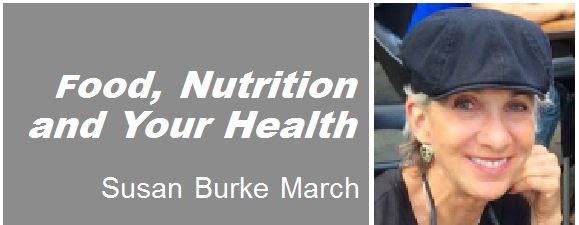Misinformed consent? Caveat emptor!
Why are some people so susceptible to quackery?
I was thinking about this recently when I spied a social media query from a local expat looking for a “natural healer” or “someone in alternative health” who had “some type of machine” that would test her.
 I thought, “Test her for what? Is she ill? Does she have unexplained symptoms? Is she dissatisfied with her medical doctor, or maybe she never saw a doctor at all?”
I thought, “Test her for what? Is she ill? Does she have unexplained symptoms? Is she dissatisfied with her medical doctor, or maybe she never saw a doctor at all?”
“Some type of machine” is pretty vague. A hair dryer? A glucometer? A glucometer can test your blood sugar, but I don’t think that’s what she meant.
According to the National Council Against Health Fraud, the term “quack” describes a “healer” who boasts about his or her power or products. Quackery describes a health scam that promotes bogus products and services that do not have proven quality or effects.
A quack will offer “special” or “secret formulas” or devices. He or she uses case histories and testimonials from “satisfied patients” to prove efficacy, not controlled trials. He’ll create a David and Goliath scenario, defining the “medical establishment” as being in existence purely for profit, claiming that “allopathic” medicine and “Big Pharma” have conspired to persecute him as someone brave enough to reject “modern medicine,” and insist that only by being “natural” can the body truly “heal itself.”
 So, what’s a “machine” that might test you? One used only by “natural healers” or “alternative health practitioners?” I asked a friend who has a background in scientific research if he’d ever heard of such a thing. He said “oh yes” and linked me to an article published in ScienceBased Medicine.org, a non-profit organization dedicated to “evaluating medical treatments and products of interest to the public in a scientific light.” They describe one machine in particular, for “electro dermal” (or electrodermal) testing, and details how it is purported to work. They write:
So, what’s a “machine” that might test you? One used only by “natural healers” or “alternative health practitioners?” I asked a friend who has a background in scientific research if he’d ever heard of such a thing. He said “oh yes” and linked me to an article published in ScienceBased Medicine.org, a non-profit organization dedicated to “evaluating medical treatments and products of interest to the public in a scientific light.” They describe one machine in particular, for “electro dermal” (or electrodermal) testing, and details how it is purported to work. They write:
“Electrodermal testing is a bogus procedure where measurements of skin conductance with a biofeedback device are entered into a computer to diagnose nonexistent health problems and “energy imbalances” and to recommend treatments for them, often involving the sale of homeopathic remedies and other useless products. It falls under the general category of EAV (Electro Acupuncture of Voll).”
They link to further information from Dr. Steven Barrett of Quackwatch.org:
 “The most common use is for prescribing homeopathic products, dietary supplements, and herbal products. The devices are also used to determine “allergies”, detect “nutrient deficiencies” and locate alleged problems in teeth that contain amalgam fillings. Some operators claim to tell whether a disease, such as cancer or acquired immunodeficiency syndrome, is absent. Some devices are claimed to treat the patient with electromagnetic impulses transmitted into the body or are used to energize products.”
“The most common use is for prescribing homeopathic products, dietary supplements, and herbal products. The devices are also used to determine “allergies”, detect “nutrient deficiencies” and locate alleged problems in teeth that contain amalgam fillings. Some operators claim to tell whether a disease, such as cancer or acquired immunodeficiency syndrome, is absent. Some devices are claimed to treat the patient with electromagnetic impulses transmitted into the body or are used to energize products.”
Read more about “electrodiagnostic devices” here.
[By the way, Barrett also explains that these devices are not biofeedback devices. Biofeedback is a helpful technique shown to allow the patient to control some body functions, such as heart rate. Wikipedia says, “Biofeedback may be used to improve health, performance, and the physiological changes that often occur in conjunction with changes to thoughts, emotions, and behavior. Eventually, these changes may be maintained without the use of extra equipment, for no equipment is necessarily required to practice biofeedback.”]
 More bogusness: “Biomeridian Stress Testing” is another term to describe electro acupuncture where the practitioners will use the “tests” to “detect cancer non-invasively” and determine your “unique deficiencies.”
More bogusness: “Biomeridian Stress Testing” is another term to describe electro acupuncture where the practitioners will use the “tests” to “detect cancer non-invasively” and determine your “unique deficiencies.”
Make an appointment with a “practitioner” who is using the “machine” to evaluate your health, and you’re guaranteed to walk out of the office with hundreds of dollars worth of “necessary supplements” that they will insist are vital for bringing you back to health. Don’t we all wish it to be so?
Barrett says that using these devices for diagnostic purposes is very dangerous because “the transmittal of false or misleading health information can cause emotional harm, a false sense of security, or a false set of beliefs that can lead to unwise decisions.” Even “new age” medical doctor Andrew Weil, MD says that relying on the “highly dubious method can be harmful if you have a serious disorder and can delay proper treatment.”
Article continues below graphic.
 The phrases “complementary therapy” and “alternative therapy” are often used as if they mean the same thing, sometimes combined into one phrase – complementary and alternative therapies (CAMs).
The phrases “complementary therapy” and “alternative therapy” are often used as if they mean the same thing, sometimes combined into one phrase – complementary and alternative therapies (CAMs).
It is not always easy to decide whether something is a complementary or alternative therapy. But there is an important difference.
A complementary therapy means you can use it alongside your conventional medical treatment. It may help you to feel better and cope better with your disease and treatment.
Some examples of complementary therapies are acupuncture, herbal medicine, massage, yoga, and visualization. Controlled research trials have been conducted on these therapies … some work better than others for different things. For example, the Anxiety and Depression Association of American writes that yoga, which combines physical postures, breathing exercises, meditation, as well as other forms of regular physical exercise may help alleviate anxiety and depression.
An alternative therapy is generally used instead of conventional medical treatment. As noted by Cancer Research UK, all conventional cancer treatments must undergo rigorous testing by law in order to prove that they work. However, alternative therapies like those mentioned above as well as cupping, essential oils, and my pet peeve, detox therapies have not been through such testing and there is no scientific evidence that they work. Some types of alternative therapy may not be completely safe and could cause harmful side effects.
In my career in the U.S. as a registered dietitian and certified diabetes educator, and especially over the past four years since moving to Cuenca, I’ve encountered people who delayed treatment for a number of acute conditions that could have been helped if they’d consulted a reputable doctor right from the start, including for broken bones, infections, back pain, diabetes, cataracts, and gastrointestinal issues due to parasites and worse. In all cases, by delaying treatment to consult with “alternative” practitioners they worsened their conditions and required more extensive (and possibly expensive) follow-up treatment.
Quacks primarily target older adults, the health-conscious, those who are trying to stop the clock on aging, and sufferers of painful chronic diseases such as arthritis, cancer, and HIV. Intractable pain, desperation for relief, and worry about the cost of healthcare makes people that much more susceptible to quackery.
There is little regulation about what can be advertised and sold here in our community of Cuenca and for that matter, in the U.S. I’ve written about a number of sketchy “cures” and protested publicly when I’ve seen health quackery advertised on various expat forums, including IV vitamin C, coffee enemas, “chelation therapy” and “natural, affordable cancer cures.” I feel an obligation to speak out, and will continue to do so. With evidence and an open mind.
Writing for the James Randi Educational Foundation, William M. London, professor of public health at California State University, Los Angeles, says, “Consumers have only the illusion of free choice when they are led to make decisions based on false or misleading information that comes with quackery. There is no health freedom in what is based upon misinformed consent. When you’re being deceived, you’re not free to choose. And when your health is threatened, it’s especially difficult to be wary of quackery.
“Health freedom” advocates expect health consumers to beware despite their disadvantageous bargaining position, but they don’t expect those offering products and services to be fully accountable to consumers. Caveat emptor is an important educational message for the James Randi Educational Foundation to offer, but it’s unreasonable to rely on caveat emptor without public policy based on the notion of caveat venditor (or caveat vendor): let the seller beware.”
I think when consumers stay educated, then there’s no market for quackery. I like what Paul Offit, MD, Chief of the Division of Infectious Diseases at Children’s Hospital in Philadelphia and author of “Do You Believe In Magic? Vitamins, Supplements, and All Things Natural: A Look Behind The Curtain” says, “…if an alternative medicine works, then it’s medicine. If an alternative medicine doesn’t work, then it’s not an alternative.”
Sources:
Cancer Research UK. The difference between complementary and alternative therapies.
DrWeil.com. Is having a biomeridian stress test worthwhile?
James Randi Educational Foundation. Why I Oppose Quackery.
National Council Against Health Fraud. Some Notes on Quackery.
National Institute on Aging. Beware of Health Scams.
NPR.org. Is alternative medicine really “medicine?”
Quackwatch.org. Quack “Electrodiagnostic” Devices. ScienceBasedMedicine.org. Electrodermal Testing Part I: Fooling Patients with a Computerized Magic Eight Ball.
ScienceBasedMedicine.org. Electrodermal Testing Part II: Legal and Regulatory Aspects.
Wikipedia.org. Biofeedback.
Susan Burke March, MEd, RDN, CDE, a Cuenca expat, is a Registered Dietitian, and Certified Diabetes Educator who specializes in smart solutions for weight loss and diabetes-related weight management. She is the author of Making Weight Control Second Nature: Living Thin Naturally—a fun and informative book intended to liberate serial dieters and make healthy living and weight control both possible and instinctual over the long term. Do you have a food, nutrition or health question? Write to her at SusanTheDietitian@gmail.com





















